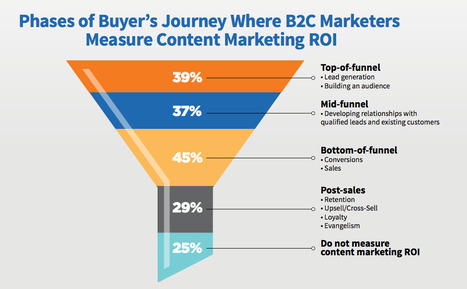My team and I are about to take a big leap into B2C content marketing. With most of my personal content marketing experience having taken place on the B2B side, I decided to dig into this year's B2C content marketing trends report by Ann Handley and Joe Pulizzi.
Research and publish the best content.
Get Started for FREE
Sign up with Facebook Sign up with X
I don't have a Facebook or a X account
Already have an account: Login

 Your new post is loading... Your new post is loading...
 Your new post is loading... Your new post is loading...
|










Let's start with a general overview of some of the best of the best and the worst of the worst:
Top 3 traits of high-performing content marketing orgs
Top 3 struggles of low-performing content marketing orgs
Related: only 52% agreed that their leadership team gives them ample time to produce content marketing results.
Key action item:
Of the 2,500+ consumer content marketers (from brands of varying size) surveyed, almost 60% of them claimed that they have at least some - if not complete - lack of clarity when it comes to what content marketing success even means. It wasn't surprising, then, to see that only a quarter of respondents feel that their content marketing is highly successful.
What this says to me is that the first step to becoming a successful content marketing organization is defining what the heck success even means. Some of the possible answers here could include an increase in website traffic, an increase in sales, or even an increase in social shares if brand awareness is your goal. (See the screenshot above for a great graphic on different ways to measure ROI based upon the buyer journey).
With all of that said, you might imagine my surprise when I saw that the content marketing roadblock that was reported as being experienced the least is measurement, and the most frequently used social media tools are those which provide analytics (over 90% of content marketers are using an analytics tool!).
There appears to be a disconnect between measuring and actually feeling successful, which could be even more frustrating than lack of measurement. I've now set my focus on figuring out what I can do with metrics rather than just collecting them, which will hopefully allow me to focus on the right ones moving forward rather than overloading on numbers without any actual perceived success.
What are some of your best content marketing measurement tips?